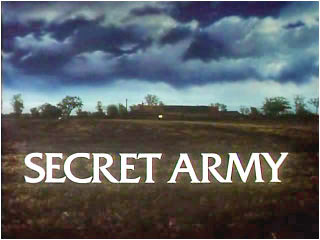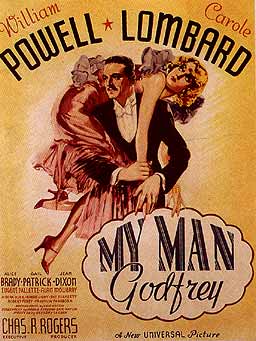My sister is currently in the process of moving house.
It never occurred to me that I would find this a particularly momentous occasion, not for myself at least. She has been trying to move for over a year now, since she fell pregnant and it became clear they didn’t have enough space in the house in which they currently live. I have however found myself considering a number of things in light of their move, specifically how much my relationship with my sister has changed since she first moved into her current house, and how much better I have become at dealing with potentially dangerous triggers in my life.
I was not invited to my sister’s current house until many years after she had first moved in. The first time she invited me, I mentioned that I’d never been before and she was shocked, and said that couldn’t possibly be right, but it was. The truth of the matter was that neither of us liked to acknowledge the fact that, until recently, we were not close.
This was not the case when I was very young, but as I remember it (she may have a different recollection) there reached a point when I was about five or six when she no longer seemed to understand me. I can’t speak for her, but from my perspective, it seemed she found me strange, embarrassing, and generally an annoyance. It was not often she spent time with me, and when she did it was strained. I usually upset her—not on purpose, but simply by default. I was going through an awful lot she was totally unaware of and I was, from a young age, angry the majority of the time. As a result, she kept me at a distance, from herself, her friends, and her boyfriend (now husband) when he came along. Looking back, I can understand why. My moods were unpredictable, usually quite unpleasant and, at the time, totally inexplicable to my family, who had no idea I was bipolar, and no idea what else was going one. I was conditioned to keep bad things a secret from a young age. Consequently, I never told anyone when something bad happened.
 This was a pattern that wasn’t broken until after my diagnosis in 2010. It was only then, at the age of nearly twenty five, that I was finally told I had bipolar, and finally began to unravel the mess that was my life. It was another eighteen months before I managed to extricate myself from a very bad situation, move home to my mother—another member of my family with whom I had previously had a very strained relationship—and get on the MEDs that would finally give me a little relief from the madness. It wasn’t a quick fix, it has taken a lot of time and effort and I still suffer the effects of my mood swings, but I am learning how to deal with them.
This was a pattern that wasn’t broken until after my diagnosis in 2010. It was only then, at the age of nearly twenty five, that I was finally told I had bipolar, and finally began to unravel the mess that was my life. It was another eighteen months before I managed to extricate myself from a very bad situation, move home to my mother—another member of my family with whom I had previously had a very strained relationship—and get on the MEDs that would finally give me a little relief from the madness. It wasn’t a quick fix, it has taken a lot of time and effort and I still suffer the effects of my mood swings, but I am learning how to deal with them.
I am also pleased to say that I have learned how to be a better sister.
That said, one of my greatest regrets is that I was not a bridesmaid at my sister’s wedding. This was not, I hasten to add, because she didn’t ask me to be one. She did, and I agreed, very excitedly at first, until I let myself think about the prospect of standing up in front of all those people, in a posh dress, beside all of my sister’s friends. This, again, may only be my perspective, but I have always found the majority of my sister’s friends to view me in a similar manner to my sister—strange, rude, and to be avoided. On occasion, they have been downright horrible to me, but then again I imagine they have been on the receiving end of my own rudeness at times also. If she asked me again now, I might perhaps be able to manage it, but at the time I was only recently diagnosed, I was in the midst of a very bad bout of depression, and I could not summon the confidence to stand—all eighteen stone of me—next to several size 8 princesses and my equally regal and skinny sister.
I will never forget the feeling of having totally let her, and myself down that day.
 The real change in our relationship, for me at least, came when she fell pregnant. I was petrified at first that this would trigger me, and I wasn’t alone. My mother, my psychiatrist, my GP, and my friends, were all on high alert for me to start slipping, but I surprised myself—and them—by coming out of my shell somewhat and stepping up to the plate. For the majority of her pregnancy, my sister suffered from severe pelvic girdle. I was studying for my PhD full time at that stage, and so my time was reasonably flexible and I spent a lot of time helping out and looking after her. Indeed, for the last three months of her pregnancy she was in a wheelchair, and needed a lot of help, a situation which continued for some time after the birth of my niece, as my sister slowly recovered.
The real change in our relationship, for me at least, came when she fell pregnant. I was petrified at first that this would trigger me, and I wasn’t alone. My mother, my psychiatrist, my GP, and my friends, were all on high alert for me to start slipping, but I surprised myself—and them—by coming out of my shell somewhat and stepping up to the plate. For the majority of her pregnancy, my sister suffered from severe pelvic girdle. I was studying for my PhD full time at that stage, and so my time was reasonably flexible and I spent a lot of time helping out and looking after her. Indeed, for the last three months of her pregnancy she was in a wheelchair, and needed a lot of help, a situation which continued for some time after the birth of my niece, as my sister slowly recovered.
The notion of there being anything at all wrong with her was, I feel, so utterly terrifying for me that it overrode my own shit enough that I could actually deal with the pregnancy and subsequent birth of my niece with minimal trauma. The reason everyone was so worried was, of course, due to a miscarriage I suffered when I was eighteen. That event was, perhaps, the worst thing that has ever happened to me—including the fire—as it had such a detrimental effect on my mental health. It scarred me in a way I’ve never been able to fully explain or understand, and it is a scar that is easily reopened. My worst triggers are the ones that remind me of my miscarriage.
And so it was a point of pride that I was able to look after my sister while she was pregnant, and put her needs before my own. It is a point of pride that I have fallen so in love with my niece, that I do not look at her and see my own child, the child I never knew, which is something that usually happens when I encounter small children—even my goddaughter and her younger sister were dangerous for me to be around when they were young, and consequently I didn’t see them regularly until they were older, and I could disassociate them from babies. This, again, is something I will always regret, having missed out on them when they were that age despite loving them both almost as much as my niece.
I have been thinking a lot about this over the last week, as my sister prepares to leave the house she wouldn’t let me anywhere near for years, and move to a new one, a fresh start for her family, and a fresh start for my cognitive associations, because I now will not have to be reminded, whenever I visit her, of the fact that she kept me away for so long. The fact that I will always be welcome at their new home is, again, a point of pride for me, and I am delighted to say that (coincidently) my niece also decided that yesterday was the day she would take her first steps.
 We are, all, moving on.
We are, all, moving on.
There have been other stresses over the last few weeks, things that have, one by one, driven my mood down. The worst of these was the fact that my grandfather had a bit of a health scare, and had to go into hospital for a minor procedure. I am beyond relieved to be able to report that he is fine, and now home, but I found it to be an incredibly stressful experience. The memory of my Nanny’s long, painful illness and subsequent passing is still too raw, still too recent, and fear for what might happen to him has kept me wide awake most nights for the last fortnight, leaving me exhausted.
I am, also, ashamed to say that I did not visit him in hospital.
I tried. Plans were made for me to visit with my brother and his girlfriend when they were going, so I did not have to face it alone. These were scuppered when we thought he was being discharged early, and I had to rush over to his flat and get everything clean and ready for him to get back. He was not, in the end, let out that day, and the following morning I braced myself for going alone, or at least with my mother later that day.
I couldn’t face it.
I’m not sure what upsets me most about this, the fact that I let down my granddad by not going to visit when he needed, and expected me to be there, or the fact that the reason for my absence was not fear of seeing him in hospital, or worry over his health, but sheer terror over stepping foot in the building.
He was in Macclesfield hospital.

In a couple of months the ten year anniversary of my miscarriage is going to smack me between the teeth. I am preparing for the possibility it will floor me, although I am vaguely hopeful that I will manage it better than I’m expecting. I have managed my sister’s pregnancy, I’ve been active in looking after my niece and see her often. Surely, I tell myself, I can cope with a date.
It’s meaningless.
So I tell myself.
Yet when faced with the prospect of returning to the very place where, almost ten years ago, I was ferried in an ambulance while losing a child I was, at that point, unaware I was even carrying, I fell apart. Would I have managed it, had I been able to go that day with my brother? I have no idea. I like to think I would have. I like to think that I have moved on enough to have been able to cope with that, albeit with the support of someone else. I have however learned that one should not be so stubborn as to refuse the aid of others if it’s what you need to get you through the day.
That, for me, is a monumental achievement. I have always been a lone wolf, keeping my problems to myself, and dealing with them (or more often utterly failing to cope with them) alone.
So I find myself thinking, in the midst of my complete exhaustion, that even though I failed to visit, I did not fail entirely, for I was able to acknowledge the fact that I wanted to go, but needed help to manage it. I was able to ask for that help. And had circumstances not prevented it from happening I like to think I would have succeeded in making that visit, and not completely fallen apart as a result.
I am, it would seem, also moving on.
I’m just doing it a lot slower than most.




 This was a pattern that wasn’t broken until after my diagnosis in 2010. It was only then, at the age of nearly twenty five, that I was finally told I had bipolar, and finally began to unravel the mess that was my life. It was another eighteen months before I managed to extricate myself from a very bad situation, move home to my mother—another member of my family with whom I had previously had a very strained relationship—and get on the MEDs that would finally give me a little relief from the madness. It wasn’t a quick fix, it has taken a lot of time and effort and I still suffer the effects of my mood swings, but I am learning how to deal with them.
This was a pattern that wasn’t broken until after my diagnosis in 2010. It was only then, at the age of nearly twenty five, that I was finally told I had bipolar, and finally began to unravel the mess that was my life. It was another eighteen months before I managed to extricate myself from a very bad situation, move home to my mother—another member of my family with whom I had previously had a very strained relationship—and get on the MEDs that would finally give me a little relief from the madness. It wasn’t a quick fix, it has taken a lot of time and effort and I still suffer the effects of my mood swings, but I am learning how to deal with them. The real change in our relationship, for me at least, came when she fell pregnant. I was petrified at first that this would trigger me, and I wasn’t alone. My mother, my psychiatrist, my GP, and my friends, were all on high alert for me to start slipping, but I surprised myself—and them—by coming out of my shell somewhat and stepping up to the plate. For the majority of her pregnancy, my sister suffered from severe pelvic girdle. I was studying for my PhD full time at that stage, and so my time was reasonably flexible and I spent a lot of time helping out and looking after her. Indeed, for the last three months of her pregnancy she was in a wheelchair, and needed a lot of help, a situation which continued for some time after the birth of my niece, as my sister slowly recovered.
The real change in our relationship, for me at least, came when she fell pregnant. I was petrified at first that this would trigger me, and I wasn’t alone. My mother, my psychiatrist, my GP, and my friends, were all on high alert for me to start slipping, but I surprised myself—and them—by coming out of my shell somewhat and stepping up to the plate. For the majority of her pregnancy, my sister suffered from severe pelvic girdle. I was studying for my PhD full time at that stage, and so my time was reasonably flexible and I spent a lot of time helping out and looking after her. Indeed, for the last three months of her pregnancy she was in a wheelchair, and needed a lot of help, a situation which continued for some time after the birth of my niece, as my sister slowly recovered.



 What they say:
What they say:  Author Bio
Author Bio A Grumpy Old Success
A Grumpy Old Success